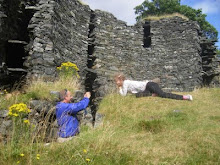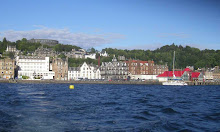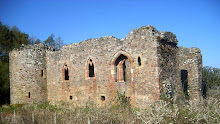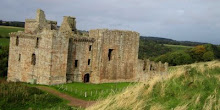The Hawick men were from 4th Battalion, Kings Own Scottish Borderers. They were ordered to take a non existent line of trenches and ended up milling around in the open under heavy machine gun and artillery fire. Only two officers ended the day uninjured; seventy men from a unit of about 700 were fit for duty next day.
There are many heart wrenching tales from Gallipoli. Many are scarcely believable accounts of sheltering for days in the baking sun behind rotting bodies (a ready breeding ground for millions of flies). But the story that particularly caught my attention was that of Brigadier Scott Moncrieff. At the Battle of Gully Ravine, he watched his men being cut to pieces as they attacked into Turkish machine gun fire. He was ordered to attack again and felt he had no choice but to be at the head of his men. He led them 'over the top' and was hit in the head by a bullet. The attack failed.
 |
| The grave of Brigadier Scott Moncrieff |
But Lochiel did not reach the government front line as his legs caught the grapeshot of their cannons; he was carried back to his home at Achnacarry and escaped to France where he died.
 |
| Cameron of Lochiel (1700 - 1748) |


















































